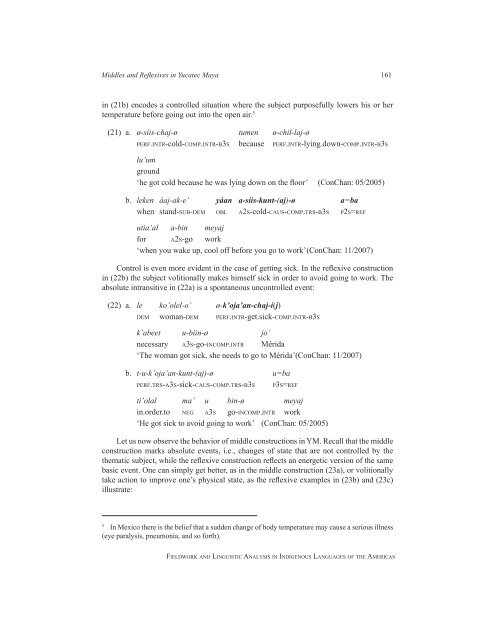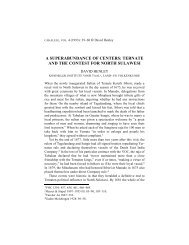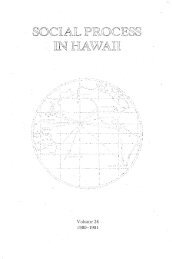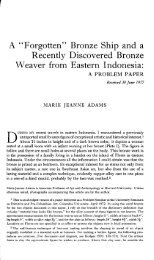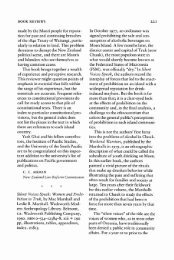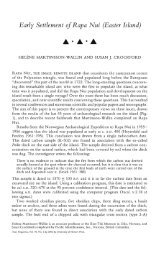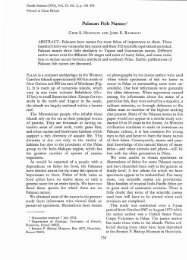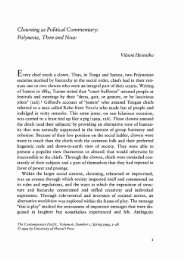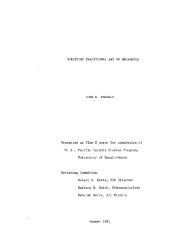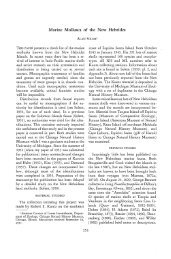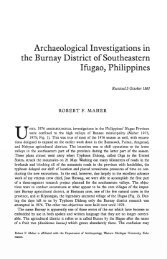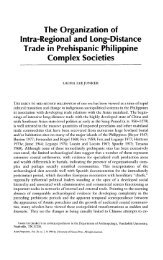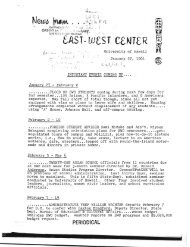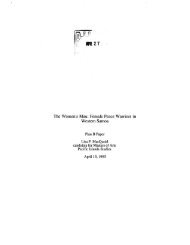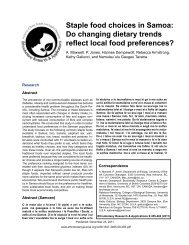Fieldwork and Linguistic Analysis in Indigenous ... - ScholarSpace
Fieldwork and Linguistic Analysis in Indigenous ... - ScholarSpace
Fieldwork and Linguistic Analysis in Indigenous ... - ScholarSpace
You also want an ePaper? Increase the reach of your titles
YUMPU automatically turns print PDFs into web optimized ePapers that Google loves.
Middles <strong>and</strong> Reflexives <strong>in</strong> Yucatec Maya 161<br />
<strong>in</strong> (21b) encodes a controlled situation where the subject purposefully lowers his or her<br />
temperature before go<strong>in</strong>g out <strong>in</strong>to the open air. 5<br />
(21) a. ø-síis-chaj-ø tumen ø-chil-laj-ø<br />
Perf.<strong>in</strong>tr-cold-comP.<strong>in</strong>tr-b3s because Perf.<strong>in</strong>tr-ly<strong>in</strong>g.down-comP.<strong>in</strong>tr-b3s<br />
lu’um<br />
ground<br />
‘he got cold because he was ly<strong>in</strong>g down on the floor’ (ConChan: 05/2005)<br />
b. leken áaj-ak-e’ yáan a-síis-kunt-(aj)-ø a=ba<br />
when st<strong>and</strong>-sub-dem obl a2s-cold-caus-comP.trs-b3s P2s=ref<br />
utia’al a-b<strong>in</strong> meyaj<br />
for a2s-go work<br />
‘when you wake up, cool off before you go to work’ (ConChan: 11/2007)<br />
Control is even more evident <strong>in</strong> the case of gett<strong>in</strong>g sick. In the reflexive construction<br />
<strong>in</strong> (22b) the subject volitionally makes himself sick <strong>in</strong> order to avoid go<strong>in</strong>g to work. The<br />
absolute <strong>in</strong>transitive <strong>in</strong> (22a) is a spontaneous uncontrolled event:<br />
(22) a. le ko’olel-o’ ø-k’oja’an-chaj-i(j)<br />
dem woman-dem Perf.<strong>in</strong>tr-get.sick-comP.<strong>in</strong>tr-b3s<br />
k’abeet u-bí<strong>in</strong>-ø jo’<br />
necessary a3s-go-<strong>in</strong>comP.<strong>in</strong>tr Mérida<br />
‘The woman got sick, she needs to go to Mérida’ (ConChan: 11/2007)<br />
b. t-u-k’oja’an-kunt-(aj)-ø u=ba<br />
Perf.trs-a3s-sick-caus-comP.trs-b3s P3s=ref<br />
ti’olal ma’ u b<strong>in</strong>-ø meyaj<br />
<strong>in</strong>.order.to neg a3s go-<strong>in</strong>comP.<strong>in</strong>tr work<br />
‘He got sick to avoid go<strong>in</strong>g to work’ (ConChan: 05/2005)<br />
Let us now observe the behavior of middle constructions <strong>in</strong> YM. Recall that the middle<br />
construction marks absolute events, i.e., changes of state that are not controlled by the<br />
thematic subject, while the reflexive construction reflects an energetic version of the same<br />
basic event. One can simply get better, as <strong>in</strong> the middle construction (23a), or volitionally<br />
take action to improve one’s physical state, as the reflexive examples <strong>in</strong> (23b) <strong>and</strong> (23c)<br />
illustrate:<br />
5 In Mexico there is the belief that a sudden change of body temperature may cause a serious illness<br />
(eye paralysis, pneumonia, <strong>and</strong> so forth).<br />
fieldwork <strong>and</strong> l<strong>in</strong>guistic analysis <strong>in</strong> <strong>in</strong>digenous languages of the americas


